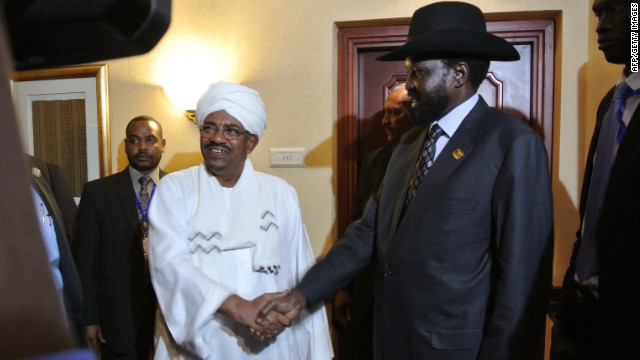Impossible
Reconciliation Between North & South Sudan

Last September, North and South Sudan signed a treaty with
each other to end three decades of war. In January, the exact same document that
had been signed in September has been re-agreed upon, even though none of the
content of the peace treaty has changed. In 2011, South Sudan gained
independence from the North and since then clashes between rebel groups and the
formal government is causing a perpetually hostile and dangerous atmosphere.
Neither side is trusting the other as each side has dangerous rebel groups
working hard to eliminate Omar Al Bashir.
Both countries rely on each other for the flow of resources
from one country to another. The south is rich in oil reserves but the north
has the pipelines to outsource the oil to the Red Sea. Since oil is the primary source for the North
and South's income, it is imperative that a settlement be made for both of the
country’s sake. The North is being increasingly unwilling to work with the
South as they have seen their country’s main economic resource stripped away by
the South’s succession.
Both Sudans have been experiencing traumatizing inflation as
no money is flowing into the country. Increasingly unhealthy amounts of money
are being artificially pumped into the economy making life for the average
citizen increasingly expensive. Government and military officials are no longer
being paid which is weighing heavily on South Sudan’s president Salva Kiir as
he faces threats of being overthrown by the military. Virtually no stability
has found this war torn area even through its many settlements and peace talks.
Omar Al Bashir clearly isn’t ready to allow the South and North to be peaceful
as the South is tittering on the edge of financial disaster.
South Sudan has fought long and hard for their independence
and yet still after decades of turmoil the people still have it in them to
fight. Both countries have a long way to go beyond halting the back and forth
violence between the North and South. Both economies and governments are weak
and chaotic. This seems to be an impossible situation as too many groups other
then the two governments are the main characters for violence and disorder. A
large amount of trust must be given to both sides in order for each government
to function with out tension, so that they can work together to tackle the rebel
groups that reside on both sides. Omar Al Bashir also needs to allow the South
to prosper with its oil reserves instead of sitting along the sidelines waiting
for more southern military disorder. Both countries are far from where their
people would like to see them. Violence
is rampant and no solution seems to be in the near future between these two
countries or within the two countries individually. The first step to peace
will require Omar Al Bashir to let go of resentment in the South and allow them
to utilize their resource rich land.
“Losing The Plot.” The Economist 1 December
2012. 13 February 2013 <http://www.economist.com/news/middle-east-and-africa/21567372-attempted-coup-suggests-regime-war-itself-losing-plot>.
“The Two Sudan’s: Lets Sign Again.” The Economist 10
January 2013. 13 February 2013<http://www.economist.com/blogs/baobab/2013/01/two-sudans?zid=304&ah=e5690753dc78ce91909083042ad12e30>.
No comments:
Post a Comment